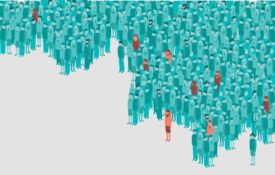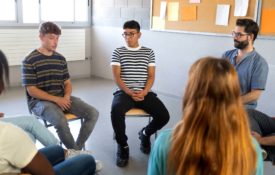-

Seven Early-Career Researchers Honored With 2024 APS Janet Taylor Spence Award
The seven recipients are honored for cutting-edge research on topics ranging from self-regulation to collective emotions to multicultural experiences.
-

Interplay Between Humans and Algorithms the Focus of Journal Special Collection
A special collection of articles in Perspectives on Psychological Science provides insights from leading researchers on the interplay between humans and algorithms.
-

People Are Inclined to Hide a Contagious Illness While Around Others, Research Shows
A startling number of people conceal an infectious illness to avoid missing work, travel, or social events. Novel approaches beyond relying on individual good will may be needed to mitigate these harmful concealment behaviors.
-

Detention Fails to Help Young Lawbreakers Avoid Further Offenses, Report Shows
Youth who are caught committing crimes are far less likely to reoffend when they receive rehabilitative help, such as therapy and life-skills training, rather than a legal punishment. Learn more about the new PSPI report and what bringing systems and science to find solutions could do to help young people.
-

Scientists Discuss How to Study the Psychology of Collectives, Not Just Individuals
In a set of articles appearing in Perspectives on Psychological Science, an international array of scientists discusses how the study of neighborhoods, work units, activist groups, and other collectives can help us better understand and respond to societal changes.
-

‘Forget I Said That’: The Evolutionary Drive to Disclose May Lead to Oversharing
The decision to share personal information may boil down to a battle between the drive for privacy and the drive to disclose, according to this recent article.

